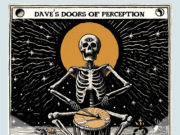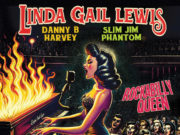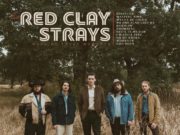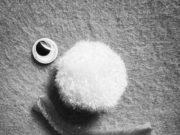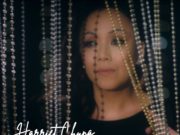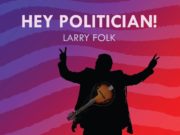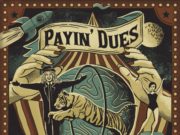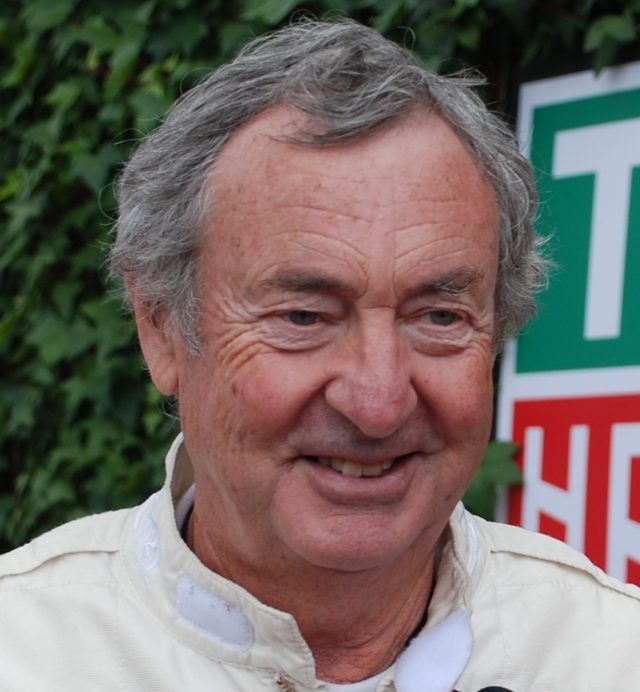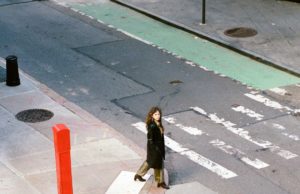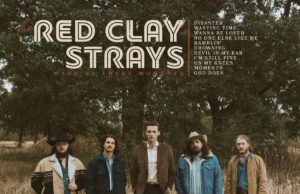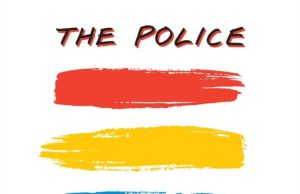Sept. 15 is an eventful date in the world of Pink Floyd. On Sept. 15 1975, Wish You Were Here was released in the U.K., three days after its North American release. And 33 years later, on Sept. 15, 2008, keyboardist Richard Wright died after a battle with cancer. Which makes today a good day to resurrect this in-person interview I did with drummer Nick Mason in 2011, when Wish You Were Here, Dark Side of The Moon and The Wall were all reissued in expanded box sets as part of the band’s Why Pink Floyd … ? archival series. We sat down in his large but homey suite at Robert De Niro’s Greenwich Hotel in lower Manhattan, and our scheduled 10-minute interview stretched into a meandering 45-minute chat — most of which has never seen the light of day until now. Enjoy.
NEW YORK CITY — Waiting for a Pink Floyd reunion? You’d be better off working for peace in the Middle East.
Dumb joke? Not to drummer Nick Mason. He says that sort of global cause might be what it takes to bring together his estranged bandmates Roger Waters and David Gilmour (keyboardist Richard Wright died of cancer in 2008). “There are two elements to it, really,” explains the 67-year-old rock legend, relaxing at the rustic dining table of his hotel suite. “One is how Roger and Dave actually felt about working with each other, and whether there was some advantage in it — that they would get something from it or achieve something they can’t on their own. And the other thing would be wanting to do something that could be a real force for change, a grander version of Live 8 driven by someone even more major than Bob Geldof — someone who could say, ‘Look, we could put this event on and it would transform the Middle East peace process.’ ”
Yeah, good luck with that. In the meantime, Mason and his bandmates are about to launch a massive endeavor of their own: The ultimate overhaul of their catalog. Dubbed Why Pink Floyd … ?, the multi-stage campaign kicks off Tuesday, when all 14 of the prog-rock gods’ studio albums are reissued in remastered Discovery editions (and in one giant box set). Also out that day are two expanded versions of the band’s 1973 stoner masterpiece The Dark Side of the Moon: A double-disc Experience edition (which includes a 1974 live recording) and a six-disc Immersion edition (with live recordings, studio rarites, DVD audio and video, Blu-Ray, photographs, memorabilia and more). Immersion and Experience editions of 1975’s Wish You Were Here — their tribute to troubled ex-bandmate Syd Barrett — and their 1979 magnum opus The Wall follow in November and February. After previewing the music at Jimi Hendrix’s Electric Lady Studio, I sat down with the soft-spoken, drily witty drummer to discuss drumming, drugs, Dark Side and dealing with his bandmates.
Do you ever get tired of talking about Pink Floyd?
No. I sort of walked into it. I really sort of volunteered for it. And I don’t mind. I’ve done the book, which i really enjoyed doing. So the others have sort of let me become archivist, spokesman, whatever. And Roger’s out touring, so he can’t do it. I’m actually quite happy to do it.
So, why Pink Floyd indeed? What’s the goal of these releases?
Well, I think there is a sense that we’re coming to the end of physical music and everything will be downloaded within two or three years. So it’s quite nice to do what may be a final celebration of the packaging. And it’s a chance to do something we resisted for a long time, which is this idea of releasing something more than the actual unit that we thought was exactly right. People are interested in the gestation of ideas, and where things came from, and how you did it wrong at the start. Up until 10 years ago, the idea of releasing all that seemed absurd. But of course, I’m interested in that with other people; I have every version of Charlie Parker’s Now’s the Time. And if you buy into that, it suddenly becomes easier. Because otherwise, frankly, there’s the embarrassment of feeling you are just milking it, you know? That was something that held us back as well.
Were you quite heavily involved in this process, as opposed to just signing off on something?
Actually, we all were involved. Everyone was quite engaged in what should be on there and what shouldn’t be. Of course, the actual work was done by EMI. But we’re jolly good at taking credit.
Can you listen to your albums with anything approaching objectivity?
Funny enough, I can listen to the peculiar stuff that’s come out of the woodwork more easily than I can listen to the originals. But my tendency is still to listen to the originals — even though there are things I can’t listen to now without going, ‘Oh, why did I leave that gap there?’ But there are also occasions when I listen to something and think, ‘Ooh, that’s nicely done.’ For me, usually it’s things where the music has crossfaded from one thing to another. Because I can remember the way we did it and it was done by hand. and we would do it over and over until it was absolutely right. And you listen to it now and go, ‘Yeah, that’s really good.’ Because you can’t actually hear the point at which the crossfade starts and where it finishes. I love that. I listen to that and think that’s done properly.
I presume there are many things you haven’t heard since the moment you recorded them? Hearing those must be an interesting experience.
I think I always come up with the same answer to this, which is that it is like reading the entry in a diary. You remember the moment of the recording itself rather than listening to the music. You’re thinking, ‘That was at such and such a place in 1966,’ and that sort of thing. There’s a track that’s actually got Rick’s wife Julia singing, and you suddenly hear that voice and go, ‘That’s Julia!’ You notice the detail rather than the actual performance.
There must be things you’ve forgotten, especially given certain activities you may have indulged in at the time.
Yes. There are all sort of surprises when you listen properly. There’s a thing where we play On The Run, and it’s pre-computer. And it’s played almost like an uptempo jazz piece. I had completely forgotten about that. And actually, when I listened to it, I thought, ‘This isn’t us.’ Eventually I realized it was, but it was so out of character for us. It’s rather nice, and it’s definitely led by Rick. And in a way, it’s a shame that it didn’t come up somewhere else. because we were quite good sometimes at transposing ideas like that.
Was all this stuff sitting in a vault somewhere? Where does it all come from?
A lot of it was people really paying attention and looking for things. The trouble with a vault is that there’s someone who thinks they know what’s there, and they go and have a look where they should look, and they can’t find it because it’s not there. Funnily enough, I sort of got this from my dad’s life. Because he used to make films. He did a series for Mercedes. And they said they’d got things and they were all completely wrong. What they said on the tin and what was on the film was so different. And so it sort of made me think that it was worth pursuing and going back, and getting people to get the boxes and see if what’s inside really is what it says on the box. And this is a recurring theme, but the Stephane Grappelli (version of Shine On You Crazy Diamond), I had no idea it still existed. That, to me, was a complete eye-opener. I couldn’t understand how it escaped notice for 30 years or so. We’d talked about it a lot. It was a well-known story that he came in the studio. And the well-known story was that we’d then wiped the track because we needed it for Dave’s vocal or something like that. But there it was.
Is that recording something of a crown jewel in the set for you?
Yeah, absolutely. Because it’s not like it’s a rough demo. It’s the actual backing track that’s as good as it ever was, but with this lovely solo. And I was someone who loved all that Django Reinhardt stuff. So it’s quite moving, really. We’ve worked with lots of other interesting musicians over the years, but not someone quite of that stature and that area.
Did he know who you were?
He knew exactly who we were. Because you have to remember that the French always adored us. At a time when we couldn’t get arrested in England, we could always go and work in France and be loved. They saw us as slightly intellectual and slightly … well, however they saw us, they really liked what we did. And Stephane Grappelli without doubt would have heard all about that. Also, he was on our label at the time, EMI. But it was not an arranged thing at all. They came to visit and heard what we were doing. So it was sort of a royal visit almost. But then someone had the balls, really, to say, ‘Fancy playing on it?’ And Stephane went, ‘Yeah.’ And it certainly wouldn’t have been more than two passes to have a listen and two passes to put it down.
Another song that stands out is the live version of Money from Wembley. It’s so fast.
It’s almost as though I want to get home to my tea, it’s so fast. I’m very confused about that one. I can’t make out what happened. It’s Wembley ’74, isn’t it? When I first heard it, I thought that when we recorded it for the album, we slowed it down. But this was post-recording. So that’s why I’m really surprised. So, whether we were all just feeling a bit hyper about it or whether we had decided it would work better faster, I have no idea. But I don’t like it at that speed at all. I’ve listened to it and though, ‘Why are we doing that?’ What I did like was when it settles into the 4/4 section, it really sort of … well, the truth of the matter is it slows down. But it also sort of stretches. And I love that. It goes into a sort of bluesy thing.
I think it’s a great version. It colours the song in a whole new way.
It’s interesting you say that, because that’s what bothered me: This thing about producing different versions. For me, the one that’s really fast is not as good as the one on the record, which is more measured and has a structure and so on. But having said that, there is a reason that people do like it. It’s got something the record doesn’t have, because it was live.
Is this everything, then? The cream of the crop? Or is there still more stuff coming down the line?
I may be wrong, but I would say this is not the cream of the crop: this is the entire crop. All we have left is scorched earth. We have taken all the food from the peasants. Others might disagree with that, but I think we’ve got ahold of almost everything. There are other things from other albums, of course, but in terms of forgotten jewels, I think we’ve now turned up virtually everything.
When you made Dark Side, was there a sense you had something special?
I’m not sure whether we all agree on how we felt, but I think we all knew this was the best thing we’d done by far. But we’d already been in the business for five years, and we understood that even if we produced the world’s greatest record, it wouldn’t necessarily mean the public would recognize that, or that the record company would sell it. I’m quite interested in talking about the success of Dark Side, because people say, ‘What was behind it?’ and the answer is that it was not one thing. It was several things that came together at the right moment: Roger’s songwriting, the high quality of the recording, (engineer) Alan Parsons’ input, the fact that (producer) Chris Thomas came in and helped with the mixing at the point where we might have gone on far too long and started degrading it. And Storm Thorgerson’s cover, of course, is an iconic piece of art. And brand management, if you will. So it was all those things.
Was there a downside to the way it changed your lives?
I think it would be churlish to start moaning about it. No, i don’t think so. First of all, we’d been around long enough. And funnily enough, when Dark Side started zooming up the charts, we were actually on tour in America. It was after we’d done it. It wasn’t part of our lives to the same extent anymore. So we were enormously gratified that it was doing well because that affected the number of people turning up at the shows. But we were already a little distant from it by that point. The difficulty came with the followup record. That was a nightmare. A year was wasted trying to find it. It worked out well in the end, and funny enough, it came to exactly what we would have said we would have liked to do, which was not Dark Side Part 2. It was something more extended. But it took so long to get there that we all were quite … well, bordering on depressed, really, that we couldn’t find our way.
Are there things on Dark Side you would go back and change?
Not particularly. If you went back now and redid them, you’d do them in a different way. And the reality is one shouldn’t bother with that. We had quite a salutary lesson at the beginning of the last big tour. We were performing Dark Side as a complete piece, and the first night we recorded it and had a listen to it — and it was dreadful. We were all overplaying like mad, because 15 years on, we’d all got better as musicians. And the tendency is always to do more. But sometimes you should just leave it as it was because it was right.
Are there things you would change on a personal level?
Well, obviously I would be a better person. I’d be nicer to Roger; I think that would have made him a better person. (Laughs). One of the things about being more grown up is you are able to work with each other more easily. You learn how to cooperate rather than fight.
What about the saga of Syd? Any regrets there?
Of course, one’s always got that. But I’m very forgiving of myself. Looking back on it, we didn’t know any better. And it’s not a bad thing to recognize what we did wrong. We should have just cut him free at the point when he didn’t really want to be in a pop-star band. It still might not have saved him. There still might have been a big drug problem or a psychosis. And frankly, that’s not the only example of that. There are other people we’ve come across — people with drug problems where we didn’t know what to do about it and we didn’t deal with it very well. But if we had known exactly what to do and done the right things, we probably wouldn’t have ended up with the band we did and the music.
How accurate is your druggy reputation? People think you were all incredibly high all the time.
Yeah. And that’s curious, really. Because we actually ended up being incredibly straight because of Syd. We were scared off, really. Even strong drink, we took quite seriously. The music after the Syd era has nothing to do with drugs. It’s far more internal. And quite technical to perform. Mind you, if we had it all over again, I think we’d go mad! Why didn’t we do all that stuff? (Laughs)
Why do you think your music and albums — especially Dark Side and The Wall — have such longevity?
Apart from the drumming? (Laughs) Sorry. It’s a number of things. I think Roger’s lyrics have lasted extraordinarily well and have a relevance to people much older than he was when he wrote them. Some of his lyrics sound like they were written for a 60 year old, not a 20 year old. Also, it was the period when we were around. Music was enormously powerful. Whatever The Beatles were doing was front-page news. But music isn’t quite as important now. It doesn’t hold the same importance in our consciousness. I speak as someone who is completely besotted with the people I discovered and who influenced me and so on — people like Keith Moon and Jimi Hendrix and all that lot, and before then the R&B bands that influenced us as a rock band, and the bebop musicians who influenced me when I first became interested in music. I used to go to jazz clubs and see those players when they came over to Europe. Things really get stuck with you.
But your albums especially seem to be renewed every generation. Pink Floyd is a rite of passage for teenagers.
I suppose the answer, hopefully, is because it’s great music. But I think it’s almost embarrassing to try and nail it. Because then you start saying things like, ‘Well it’s got a sort of intellectual twist to it which is why the French like it and the reason it’s part of growing up is that people feel they’re moving on from Bananarama or Take That.’ I’m trying to think about other people that have had that sort of longevity.
There aren’t that many. We don’t have bands like that anymore. It’s all so disposable today. But you’ve an institution.
Hmm. Well, that’s a tricky one to try to work out: Who might have the legs now. There are great young bands, and so many of them. There are so many people who are good at music. I was judging a competition for 14-year-old drummers, and I just sat there going, ‘How does he do that?’ They’re so good. It’s like they’ve all learned to read and write really early on, so now they can get on and do the rest of it.
Speaking about musicianship, for a guy who says he was raised on be-bop and R&B, you’ve got a very laid-back, economical style.
Well, my doctor told me to never play faster than my pulse rate. So that’s a bit of a restriction.
I’m glad you used the word pulse. So often your rhythms mimic a heartbeat or serve as one. What was your philosophy and approach to your role in the band?
Well, it wasn’t necessarily to timekeep, although that’s meant to be important. But actually, there was a sort of realization that there was a lot to be done by having the drums stop and do something other than keep time — a cymbal rushing or whatever. I rather liked the way that the music tended to be assembled, which was rather light washes on top of the other. Particularly from Rick on the keyboards. Perhaps that was the best example of that. He would layer just a little bit and do something else on top of that. And there was this realization that there was nothing worse than the drums sort of pounding through everything. One thing I think we got to quite early on was the idea of dynamics, and you could make something more powerful by occasionally backing off and making spaces. And I think I just sort of found a comfortable approach. When I listen to some of the early playing, particularly live, you can hear me wanting to be Keith Moon or all sorts of other people. But eventually i sort of settled into what worked best with what we do.
Do you still play a lot?
Not a lot, but I still like playing. My son started playing, not very seriously. But it’s interesting — when someone else is doing it, you start listening and thinking about what they’re doing and how they’re doing it.
Are you in there looking over his shoulder?
‘Not like that, boy! Terrible!’ No, I love it. Because like I was saying about kids learning today, they have great drum teachers. Every now and then you find out it’s someone you know who was in a band in 1973 and they’re still doing it — still playing and still teaching.
These days, I get the sense your main vice is collecting cars and drums.
Well, with the drums, I don’t collect them enormously. I’ve got a number of ones that I’ve played over the years, but I’ve never really been out collecting lots of different ones. The cars are the same to some extent. The ones I’ve got are the ones I bought because I wanted to go racing with them. So it’s a pretty weird collection at one level, but it’s driven by ‘Yeah, I thought that would be fun to do something with,’ not scouring around assembling a collection. I’m not Jay Leno. But my thinking isn’t entirely different. I’m a junior Jay Leno.
If the garage catches on fire, what are you going in to save?
It’s the Ferrari 250 GTO. I bought it 40 years ago and it now makes me look like one of the cleverest people ever because the value is unbelievable. So that would have to be the first one out. On the other hand, I’ve had 40 years of fun with it. I’ve rallied it, raced it, took my daughters to weddings. It’s become part of the family. But if there was the big fire, I’d rush in there going ‘Children, get out of the way.’
Do you still race?
Yeah. Less now. But my kids still drive. And fortunately, my daughter married a racing driver so it works very well. I did ask for a dentist or a lawyer or something useful, but it wasn’t going to work out, so I took the driver.
You and Ian Paice are both the sole founding members of your bands. Roger Glover told me Paice has become the soul of Purple. Do you feel a sense of responsibility as an archivist?
I do. I’m not an archivist in the way that Bill Wyman is, who did really collect things and did an amazing job. I just kept more than the others did. And the fact that I was there at the beginning and … well, hopefully it’s not quite the end yet, but I’ve been there all the way through. And that does mean, just in terms of sheer practicality, that if we’re looking through old pictures and stuff, I tend to know who everyone is. Whereas Dave might not know someone from 1967 or whatever.
You’ve been the only constant member since 1965. Does that give you any power to say, ‘Hey, this is my band!’
I think that is a very dangerous place to go to with either Roger or David. It’s not something I’d do. But perhaps if I’m the last one standing when they’re both dead, I can rewrite everything from my perspective.
How are you all getting along these days?
It was really nice to play with Roger at the O2 recently. So it’s fairly grown up. But you’ve still got a dynamic which is basically about Roger feeling he was perhaps held back, and Dave feeling he was overshadowed. I think David’s alarmed at the prospect of working with Roger again and finding himself pushed into a place he doesn’t want to be. But hopefully we’re all getting older and mellower and wiser. I feel Live 8 was very important in showing that we could be very grownup and work together and enjoy it when it’s for the right reasons.
Do projects like this help bridge the gaps and heal the wounds?
Yeah, I think they do. With Roger particularly, it’s the moment when you are actually onstage and you realize what it all means. There’s a tendency to forget, because you get so involved in trying to do it right your way, about how much other people get from it. Sometimes, I think deliberately you have to push that away because otherwise you find yourself being directed by the fan base and pushed toward doing things you don’t want to do. But sometimes I think it’s good to be reminded how much it means to people.


